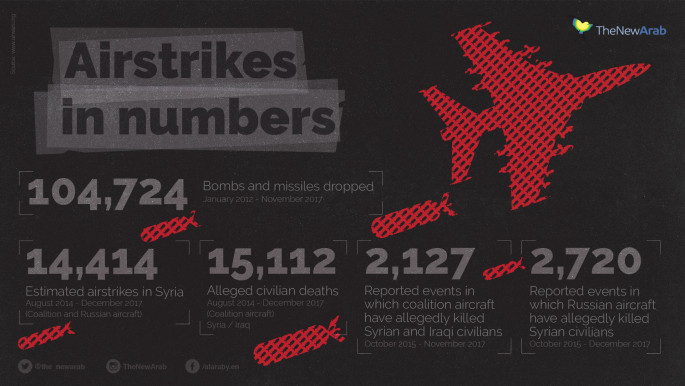Syria's Assad reshuffles government as heavy fighting continues
No reason was given for the government reshuffle, but it comes at a time when regime forces have been gaining ground in the past two years with the help of Russian airstrikes and Iran-backed ground fighters.
Army commander General Ali Ayoub has been named defence minister, replacing Fahd Jassem al-Freji who has held the post since 2012.
Imad Sarah was named information minister, and Mohammed Youssef as the new minister of industry.
The announcement came as different parts of Syria witnessed violence, mainly in the suburbs of Damascus and northwestern Syria, where troops are on the offensive in Idlib province.
In recent days, the east of Damascus has witnessed heavy clashes between regime forces and rebel forces.
The Britain-based Syrian Observatory for Human Rights said that the Syrian air force had conducted at least a dozen airstrikes on Harasta and nearby suburbs.
The Observatory added that the three days of violence in eastern Ghouta has killed 35 civilians, as well as 24 government forces and 29 rebel fighters.
The Syrian regime was driven out of Idlib province in 2015 by a coalition of opposition fighters, which collapsed this summer after Fatah al-Sham Front launched an offensive against rebel allies.
Eastern Ghouta is one of the last remaining opposition strongholds in Syria. Recent weeks have seen an increase in violence and aid groups have expressed "grave" concerns over the deteriorating situation in the region.
Around 400,000 people are believed to be trapped in the besieged area, with the UN having previously appealed for the Assad regime to allow the evacuation of around 500 priority patients.
The Syrian conflict began when the Baath regime, in power since 1963 and led by Assad, responded with military force to peaceful protests demanding democratic reforms during the Arab Spring wave of uprisings, triggering an armed rebellion fuelled by mass defections from the Syrian army.
The brutal tactics pursued mainly by the regime, which have included the use of chemical weapons, sieges, mass executions and torture against civilians have led to war crimes investigations.



![Squad incumbent Summer Lee has won her district's Democratic primary. [Brooke Anderson/The New Arab]](/sites/default/files/styles/image_212x120/public/2024-04/413898031_1041031157158522_8195934720767720634_n%20%283%29.jpg?h=ff8c3fa3&itok=bcwEKcag)